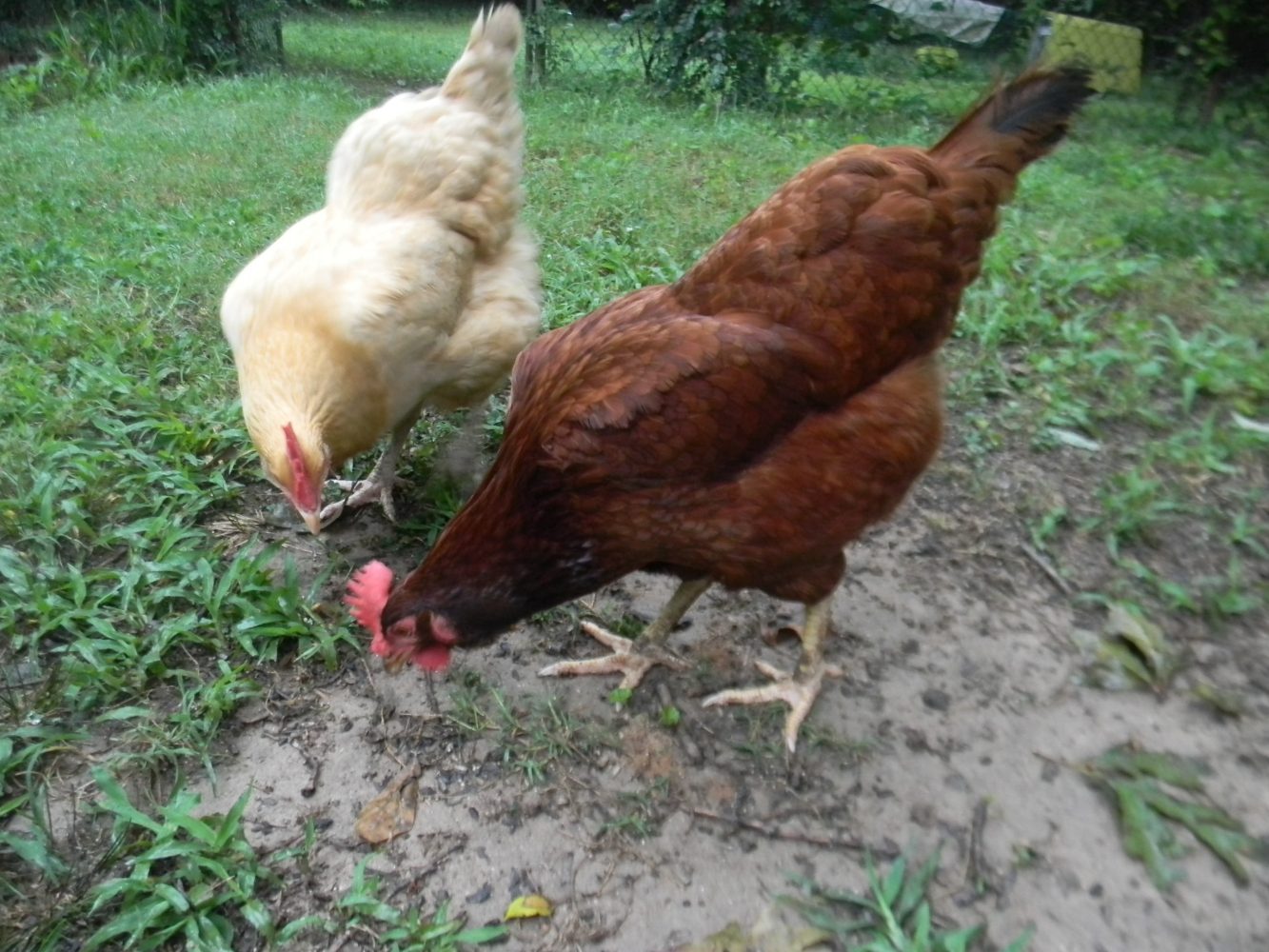A large group of people gather in a Piccadilly meeting room. Dawn Wadsworth, Grady art teacher, is among them. Most all of them are familiar with each other; they meet every month in the same Southern buffet. They are not there specifically for the classic cafeteria cuisine but rather for the company of their fellow chicken owners in the urban Atlanta area. The group members convene regularly to discuss their flocks of poultry and to listen to lectures by guest speakers. On one occasion the group even traveled to a farm. Wadsworth said as the popularity of chickens has grown, these groups have become useful by bringing experienced and inexperienced chicken owners together.
After finding two farms through Craigslist with chickens for sale, Wadsworth visited both of them to purchase her first chickens. She chose four chickens between the two farms to begin her journey of urban chicken keeping.
The Dusenbury family, with two children at Grady—Max, a junior, and Grace, a freshman—decided to buy chickens in the spring of 2010, when father Eric Dusenbury researched them online and the youngest sibling James, who is in the seventh grade at Inman, picked out the types he wanted to buy.
Two years ago, junior Tucker Lancaster took buying chickens into his own hands.
“My parents always try to stand behind whatever crazy idea I have,” Lancaster said.
Lancaster feeds the chickens, and collects their eggs, and his parents assume those duties only when he is busy or out of town.
For the Dusenburys, caring for chickens requires the labor of many family members. James checks for eggs while Max feeds the chickens. They both helped Eric transform an old play fort in the backyard into a chicken coop.
Lancaster, who also built an enclosure that holds his 25 chickens, agreed that caring for them is a lot of work. He organized a neighborhood co-op to fund his project. Seven neighborhood families pay $150 each at the beginning of each year in order to receive fresh eggs at their doorstep throughout the year. This money pays for the chicken’s food and the construction of their coop.
Wadsworth owns 10 chickens, whose eggs she keeps, shares and sells to neighbors, who regularly buy them.
“They like to know where the eggs come from, how the chickens were treated and what they ate,” Wadsworth said. “People see the value of fresh foods.”
Wadsworth keeps her chickens in an enclosure at night, but lets them roam the yard with her other pets during the day. Wadsworth lives with five cats, four birds and a dog.
“I have an extensive family,” Wadsworth said. “[My pets] know who is part of the family and who’s not.”
Wadsworth said all of her animals get along. This is not true, however, of all households with chickens. Andy Dean, the father of two Grady students, senior Sammi Dean and sophomore Emily Dean, owns one chicken, the sole survivor of a flock of four following animal attacks.
“One I think the dog killed, the other was killed by a fox,” Andy Dean said. “I heard a racket outside one night and when I looked out there, I saw a fox with the chickens.”
Chickens, being natural prey to many animals, can easily be put in harm’s way by dogs, hawks and owls, which attack chickens if given the chance. Most chicken owners put their chickens in coops at night to avoid this issue.
“Hawks are definitely an issue,” Lancaster said. “A lot of people lose chickens to [them].”
Wadsworth’s pets get along with the chickens, but she worries that hawks and owls living around her house could potentially harm her chickens. Because of this fear, Wadsworth always puts her chickens inside their coop at night.
Chickens live an average of five to 10 years, but they begin to lay fewer eggs as they get older and sometimes they stop laying eggs completely. At this point, some chicken owners decide to keeps their chickens simply as pets, while others have no use for chickens who do not lay eggs.
“After this third year, I’m pretty much going to kill all of them [who stop producing eggs],” Lancaster said.
Both Wadsworth and the Deans plan to keep their chickens simply as pets once the laying stops.
“It’s been a blast to have them,” said Andy Dean, whose chickens frequently waited for him by the back door in the mornings and followed him around the yard in a pack. “Everyone should do it. It’s fun, and it’s easy.”








Bill Gladish • May 2, 2013 at 7:27 pm
My partner and I stumbled over here different web address and thought I may as well check things out.
I like what I see so now i’m following you. Look forward to looking over your web page again.